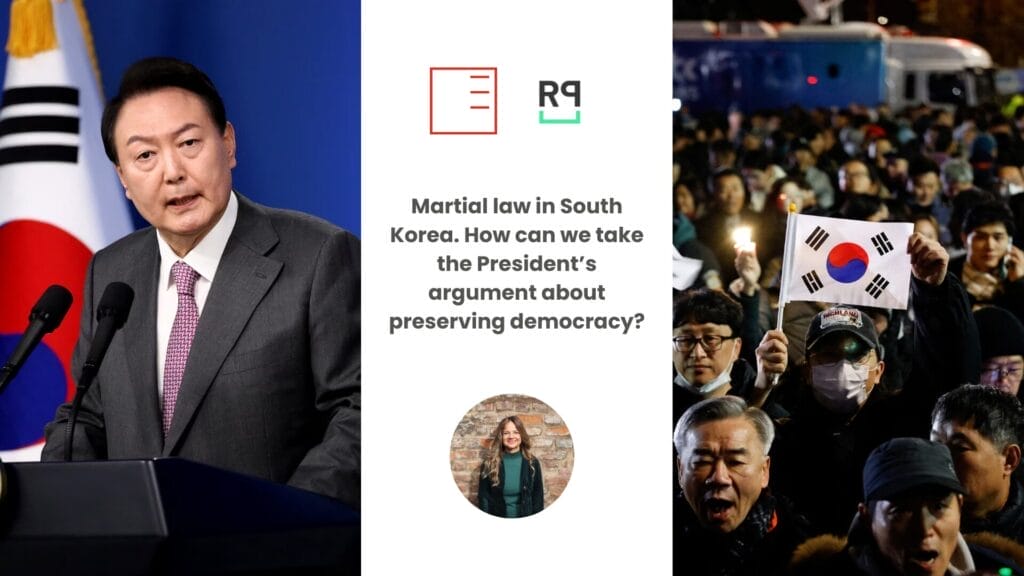
Radio Prostor | Martial law in South Korea. How can we take the President’s argument about preserving democracy?
More info 4. 12. 2024
4. 12. 2024
The South Korean President defended the declaration of martial law as a protection of democracy. How can this argument be perceived? Tereza Novotná, Associate Research Fellow at EUROPEUM Institute, commented for Radio Prostor.
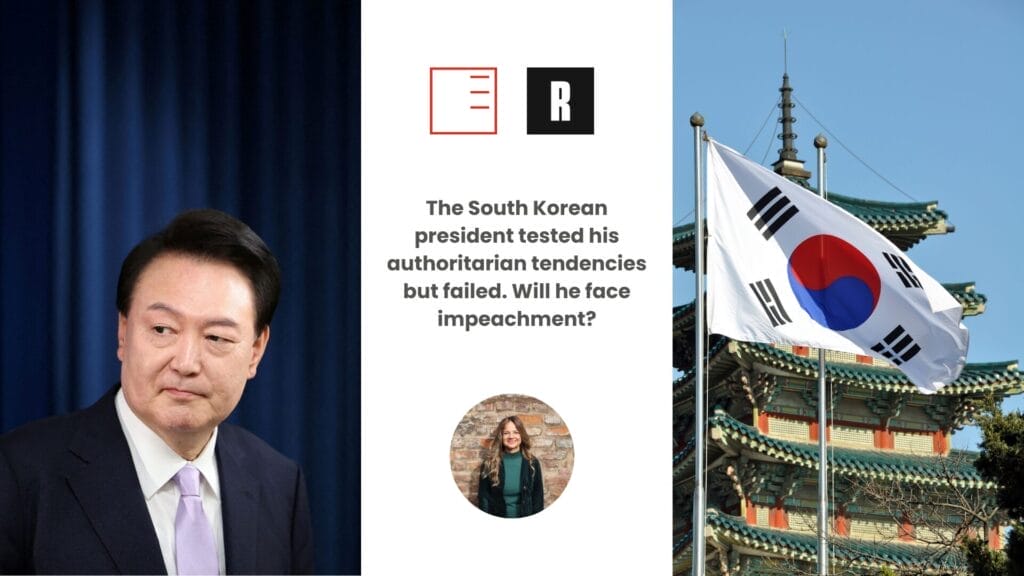
Respekt | The South Korean president tested his authoritarian tendencies but failed. Will he face impeachment?
More info 4. 12. 2024
4. 12. 2024
Martial law declared by the President of South Korea lasted six hours. However, President Yoon Suk-yeol did not present any evidence to accuse the opposition of collaborating with North Korea. South Korean MPs and citizens, who, like the police, gathered at Parliament, created such pressure that the head of state backed down from his decision after a few hours. Tereza Novotná, an Associate Research Fellow at EUROPEUM Institute, commented on the situation in the podcast Výtah of Respekt magazine.
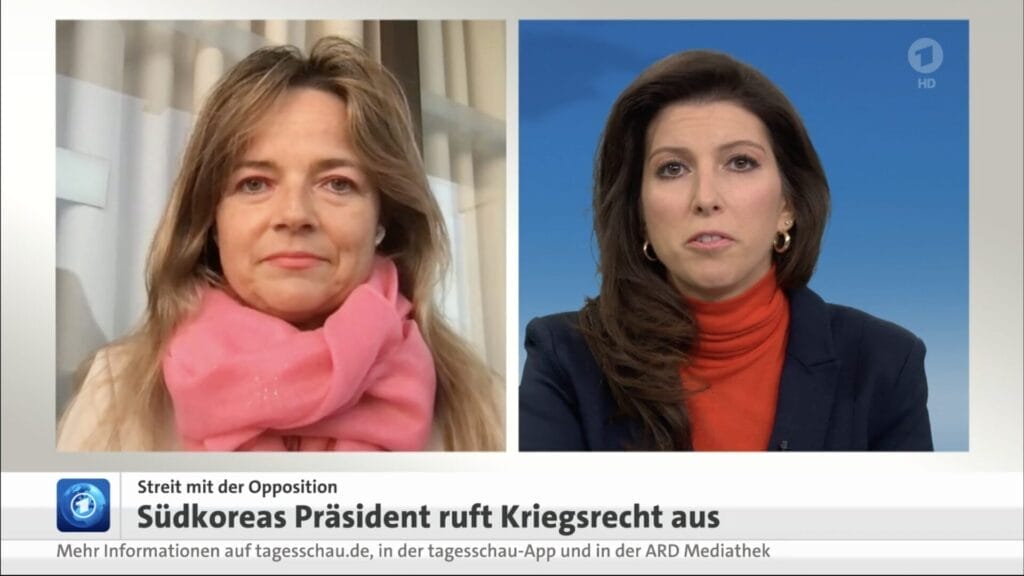
Tagesschau | South Korea's president imposed martial law and then lifted it
More info 3. 12. 2024
3. 12. 2024
South Korean president Yun Sok-jol unexpectedly declared martial law and sent troops into parliament. The institution then rejected martial law, as did members of the president's party. South Korea's head of state declared martial law amid a dispute over the national budget. The President made the surprise announcement in a televised speech. In the speech, he accused the opposition of sympathizing with North Korea and paralyzing the government with anti-state activities. Tereza Novotná, Research Associate at EUROPEUM Institute, commented for Tagesschau.
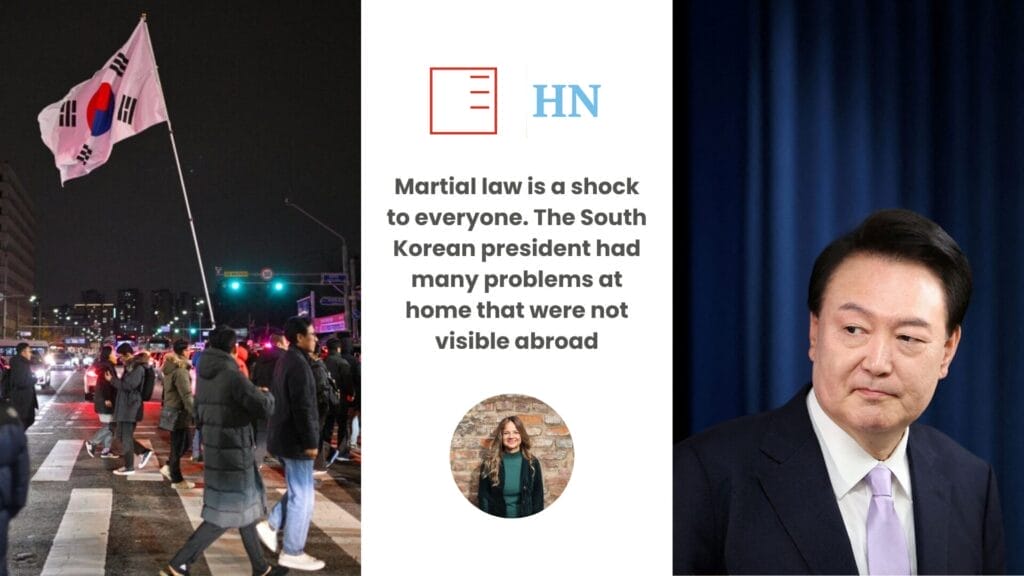
Hospodářské noviny | Martial law is a shock for everyone. South Korean president had a lot of problems at home that were not visible abroad
More info 3. 12. 2024
3. 12. 2024
South Korean MPs vote unanimously against martial law. Demonstrators and parliamentary assistants clash at the entrances to the National Assembly, which has united against South Korean President Jun Sok-jool's surprise overnight decision to declare martial law for the first time since 1980.

Statement on the National Convention | The Union and its defence
More info 2. 12. 2024
2. 12. 2024
Over the past decade, the European security environment has undergone significant changes, from the Russian invasion of Ukraine and escalating tensions in the Middle East to China's growing geopolitical ambitions. Europe is thus compelled to expand defence cooperation and strengthen its defence and security capabilities. These developments are accelerating EU Member States' efforts to develop robust common security and defence structures and policies to ensure the EU's stable position in the global geopolitical order. Writes EUROPEUM Institute researchers Zuzana Krulichová and Danielle Piatkiewicz and Associate Research Fellow Tereza Novotná.
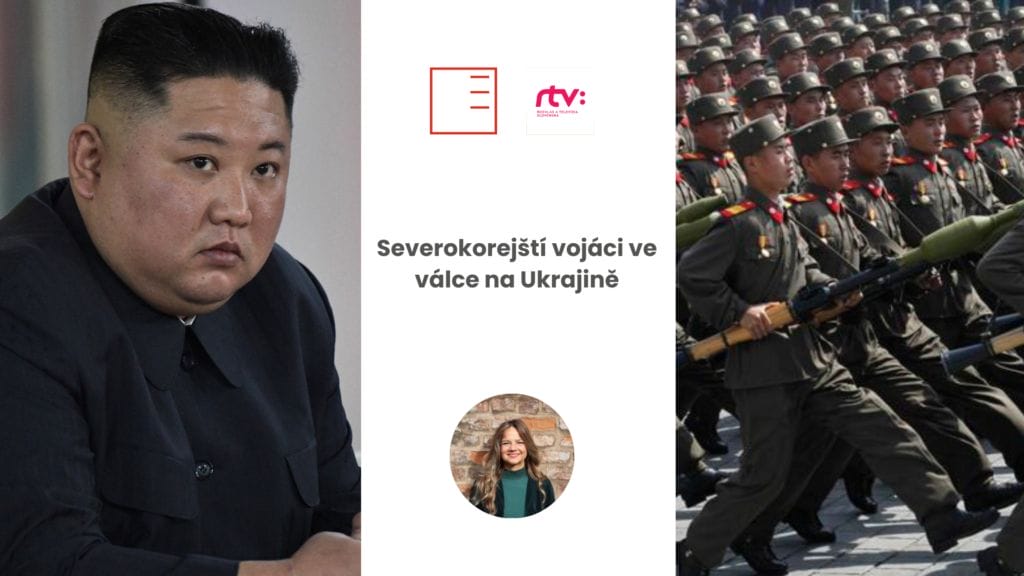
STVR | North Korean soldiers in the war in Ukraine
More info 30. 10. 2024
30. 10. 2024
Approximately ten thousand North Korean soldiers are training in eastern Russia, the US Pentagon says. Initially, the White House spoke of only three thousand. South Korea's intelligence services fear their northern neighbour could send them to the Ukrainian front. To what extent could they intervene in the war in Ukraine? Tereza Novotná, associate research fellow of EUROPEUM Institute, commented for Slovakian Radio STVR.
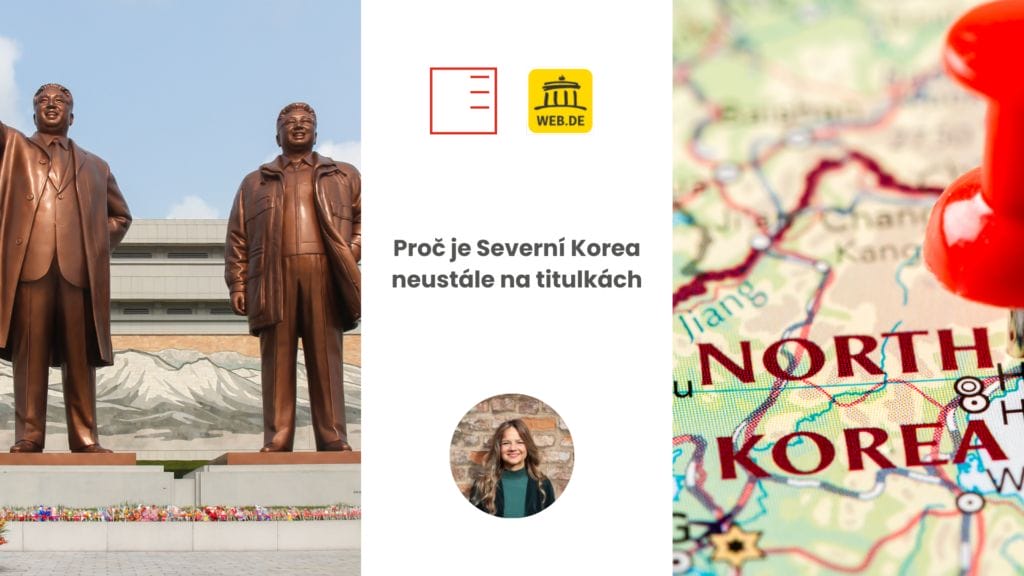
Web.de | Why North Korea is always in the headlines
More info 26. 10. 2024
26. 10. 2024
North Korea threatens its neighbour with a "terrible catastrophe", blows up roads leading to South Korea and engages in international politics. According to EUROPEUM Institute's North Korea expert Tereza Novotná, it is no coincidence that the isolated state led by leader Kim Jong-un is currently making so many headlines. She explains the possible motives behind this to Web.de.
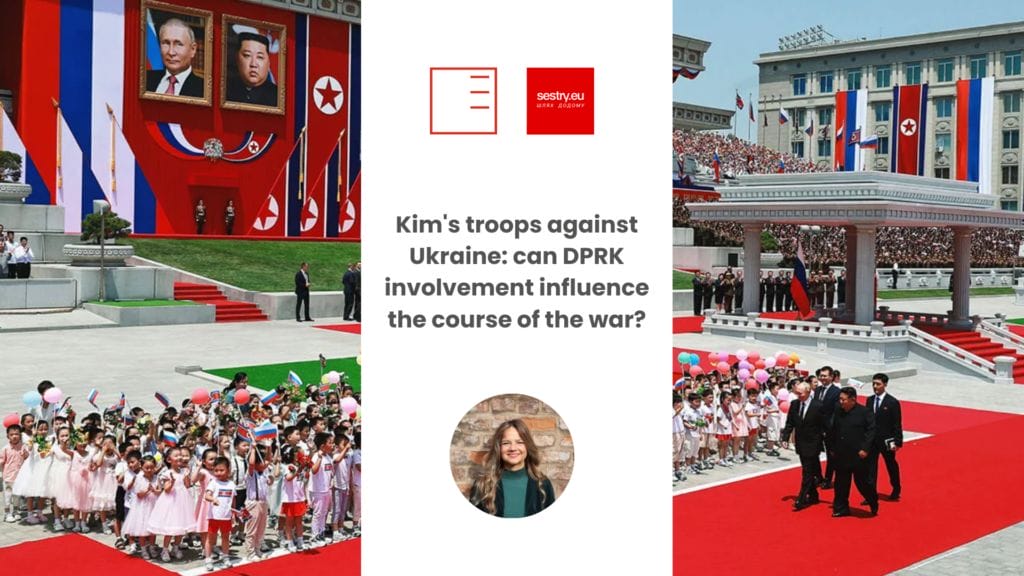
Sestry.eu | Kim's troops against Ukraine: can North Korea's involvement influence the course of the war?
More info 23. 10. 2024
23. 10. 2024
North Korea entered the war against Ukraine on Russia's side. Kiev expects an appropriate response from its partners. According to President Volodymyr Zelenskyj, there is evidence that not only workers but also military personnel are heading to Russia from North Korea. EUROPEUM Associate Research Fellow Tereza Novotná commented on the situation for Sestry.eu.
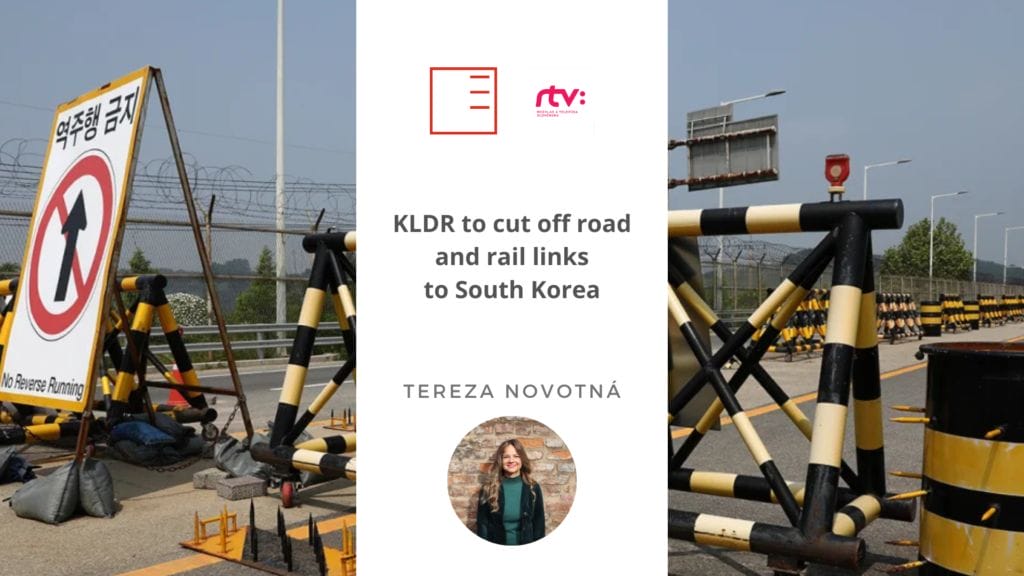
STVR | KLDR to cut off road and rail links to South Korea
More info 17. 10. 2024
17. 10. 2024
KLDR has closed all roads connecting the country with South Korea. It accuses it of escalating tensions and has officially designated it as an enemy state. South Korea, on the other hand, warns the KLDR against reckless steps that could lead to the end of its authoritarian regime. Tereza Novotná, associate fellow of EUROPEUM Institute, commented for Slovakian Radio STVR.
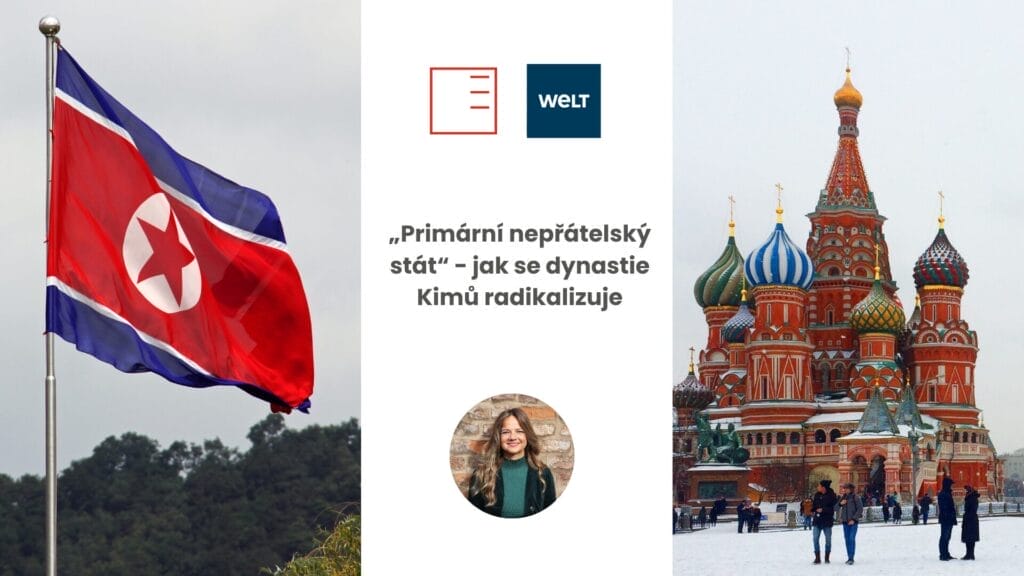
Die Welt | "Primary Enemy State" - How the Kim Dynasty is Radicalising
More info 15. 10. 2024
15. 10. 2024
North Korea is cutting off all contact with the South and dictator Kim Jong-un's sister is threatening a "terrible catastrophe". Pyongyang's policy is more aggressive than ever. One of the keys to understanding this historic shift lies in Russia. Researcher Tereza Novotná commented for die Welt.
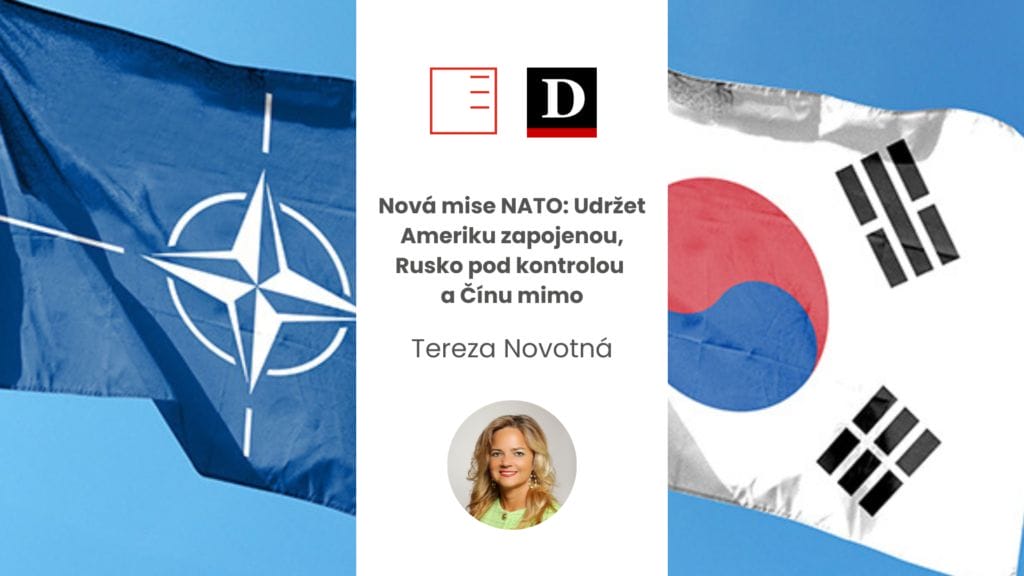
The Diplomat | NATO's New Mission: Keep America Engaged, Russia in Check, and China Out
More info 22. 7. 2024
22. 7. 2024
In an article for the international magazine The Diplomat, Tereza Novotná, an Associate Research Fellow at EUROPEUM Institute, analyzes NATO's new direction, focusing on the Indo-Pacific region. The alliance aims to keep American engagement, curb Russian aggression, and limit China's influence, with strengthening cooperation with partners like South Korea being crucial for ensuring global stability. The article also includes recommendations for enhancing these relationships.
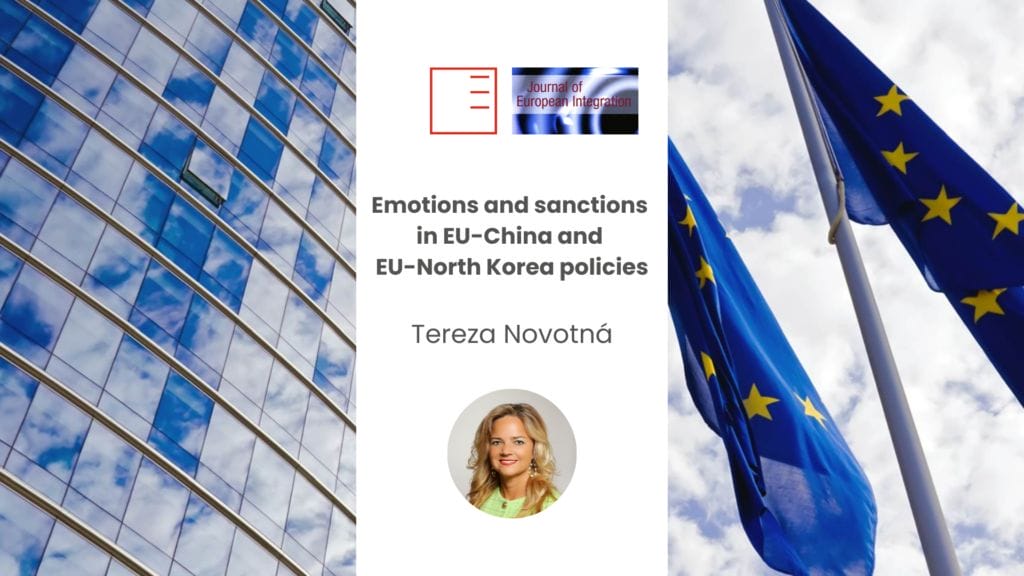
Journal of European Integration | Emotions and sanctions in EU-China and EU-North Korea policies
More info 11. 7. 2024
11. 7. 2024
Tereza Novotná, an Associate Research Fellow at the EUROPEUM Institute, explores the emotional dimensions of EU foreign policy in her article for the Journal of European Integration. The analysis examines how emotional factors shape political decisions and responses regarding EU human rights sanctions against China and North Korea, highlighting differing outcomes in these cases and suggesting that incorporating emotional awareness could enhance policy effectiveness.